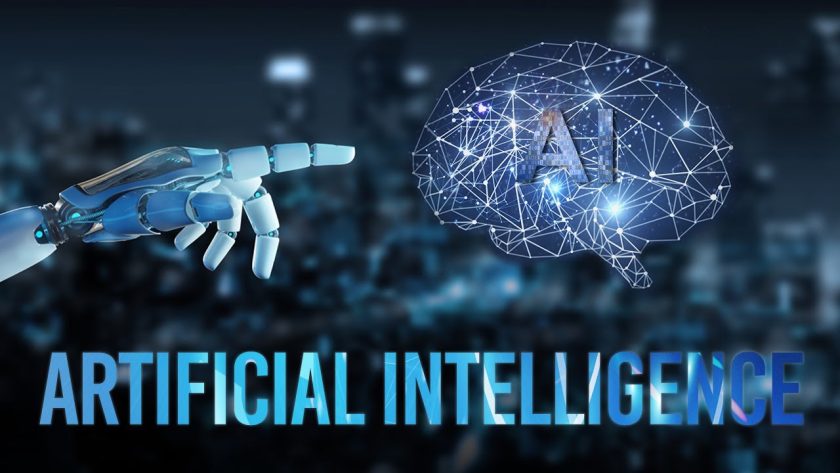Artificial intelligence (AI) is an area that is fast developing and has the potential to alter several sectors as well as how people live and work. The need for AI experts is increasing, and it is anticipated that this pattern will persist in the years to come.
But where can artificial intelligence be used? Well, AI is being utilized to create creative solutions to complex issues in industries like banking and healthcare. As there are so many career options in the AI field, they all provide good growth potential, sizable wages, and engaging work.
If you’re wanting to work in the field of artificial intelligence, you can learn more about the top 5 job options in this post. Regardless of whether you’re a student or a working professional, this piece will assist you in understanding the various career pathways accessible in AI and the capabilities you need to thrive in this field. So, why wait? Let’s describe artificial intelligence with examples and get going and investigate the fascinating field of AI professions!
Artificial Intelligence: What Is It?
The term “artificial intelligence,” or “AI,” describes the development of computer machines capable of carrying out operations that ordinarily require human intelligence, such as voice recognition, decision-making, language processing, and visual perception. Image recognition software is one application of AI that is utilized in self-driving cars, medical diagnosis, and security devices, among many others.
These systems can analyze and understand vast volumes of data to find patterns and make conclusions, frequently more correctly and quickly than people can. They do this by employing algorithms and machine learning approaches. AI can transform a variety of industries and raise people’s standards of living worldwide.
Top 5 Career Options in the Field of Artificial Intelligence
1. AI Engineer
AI engineers are analysts who create, evaluate, and use various artificial intelligence models. They manage AI infrastructure well. They employ machine learning techniques and expertise of neural networks to produce relevant AI models.
These models enable one to gain business insights, which aids the organization in making wise business decisions. Data science, computer science, or statistics undergraduate or graduate degrees are required. Any form of qualification in machine learning or data science is advantageous.
It is crucial to be proficient in programming languages like Python, R, or C++. The applicants should be well-versed in analytics, applied mathematics, NLP, statistics, and other related fields. As a result of the increasing demand for the position, the pay scale for AI engineers is fairly good. The typical pay in artificial intelligence careers is around Rs. 6 LPA, though this can vary depending on other options.
However, if you’re already enrolled in this but are having difficulty completing its assignments then opt for an online assignment writing service. From finance dissertation help to AI dissertations the experts here assist in all of it.
2. Data Analyst
Data mining, data filtering, and data interpretation are the three main tasks of an AI data analyst. The ability to gather the details needed for data analysis is made possible by data cleaning. They eliminate any unnecessary data to avoid obstructing the data collection and interpretation.
An AI data analyst makes conclusions based on the information using statistical tools and techniques. You need a bachelor’s degree in computer science or mathematics to work as an AI data analyst. However, to get your bachelor’s assignments done proficiently then you can take assistance from online websites that provide services in economics dissertation help, math assignments, and research work.
To get this job, you must have a complete understanding of regression and be able to use Microsoft Excel. An AI data analyst makes a relatively modest income when compared to other AI positions. Data scientists receive a median salary of Rs. 4.7LPA. Although there is a fairly steady need for AI data analysts.
3. Machine Learning Engineer
A machine learning engineer has one of the most well-liked and in-demand careers in the field of artificial intelligence. But do you know how artificial intelligence affect this domain and makes it one of the most prominent career? Well, designing, developing, and implementing machine learning models that can evaluate data and make predictions will be your responsibility as a machine learning engineer. Your job will entail choosing the right algorithms, creating data pipelines, and improving models to make them accurate and effective.
You need to have a solid background in computer science and mathematics, as well as an understanding of statistics and linear algebra, for a job as a machine learning engineer. You should also be knowledgeable in programming languages like Python, Java, or C++ and have familiarity with frameworks for machine learning like TensorFlow or PyTorch.
With businesses across industries looking to use AI to improve their processes and gain an edge over their competitors, the requirement for machine learning engineers is anticipated to increase exponentially in the coming years. A machine learning engineer in the US makes about $120,000 a year on average.
4. Data Scientist
The position of the data scientist is another well-liked job path in the AI industry. Large amounts of data must be gathered, analyzed, and interpreted by data scientists to draw conclusions that can guide corporate decisions. They produce data visualizations to present their findings to stakeholders and use statistical models and machine learning methods to uncover trends and patterns in data.
You need to have a solid foundation in statistics, mathematics, and computer science in addition to familiarity with programming languages like Python or R to become a data scientist. Also, you should be comfortable with software for data visualization, such as Tableau or Power BI.
As more firms look to use data to fuel their operations, the need for data scientists is anticipated to increase significantly over the next years. In the US, a data scientist may expect to make roughly $120,000 per year.
5. AI Research Analyst
Research scientists make attempts to conduct in-depth studies on implementations of machine learning and artificial intelligence. An expert in applied math, statistics, machine learning, and deep learning is referred to as a research scientist.
A research scientist makes an average salary of Rs. 7.8 LPA. A Ph.D. or advanced master’s degree in computer science or mathematics is required of candidates. Research scientists make a solid living, thus companies prefer to hire people with strong backgrounds in AI. While applying for the position, extensive expertise in Reinforcement Learning and Natural Language Processing (NLP) is required.
Conclusion
For those with the necessary talents and certifications, there are several employment prospects in the fast-growing field of artificial intelligence. There are various ways to get engaged in this fascinating and quickly increasing industry, irrespective of your passion for working with data, programming, or creating new algorithms.
Machine learning engineer, data scientist, AI research scientist, data analyst, and AI engineer are the top five careers in artificial intelligence. All of these positions provide the opportunity to gain experience with cutting-edge technology and have a significant impact on society, but they each have distinct skill and qualification requirements.
Keep abreast of the most recent advancements in the industry and keep expanding your skill set if you’re seeking an occupation in artificial intelligence. So, whether you’re just starting or hoping to further your career, there is a multitude of resources available to support your success in this fascinating and dynamic area.
References
HWD.2021. Artificial Intelligence. Online Available at: <https://www.helpwithdissertation.co.uk/blog/artificial-intelligence/> (Accessed: 27 March 2023).
Liu, N., Shapira, P., Yue, X. and Guan, J., 2021. Mapping technological innovation dynamics in artificial intelligence domains: Evidence from a global patent analysis. Plos one, 16(12), p.e0262050.





